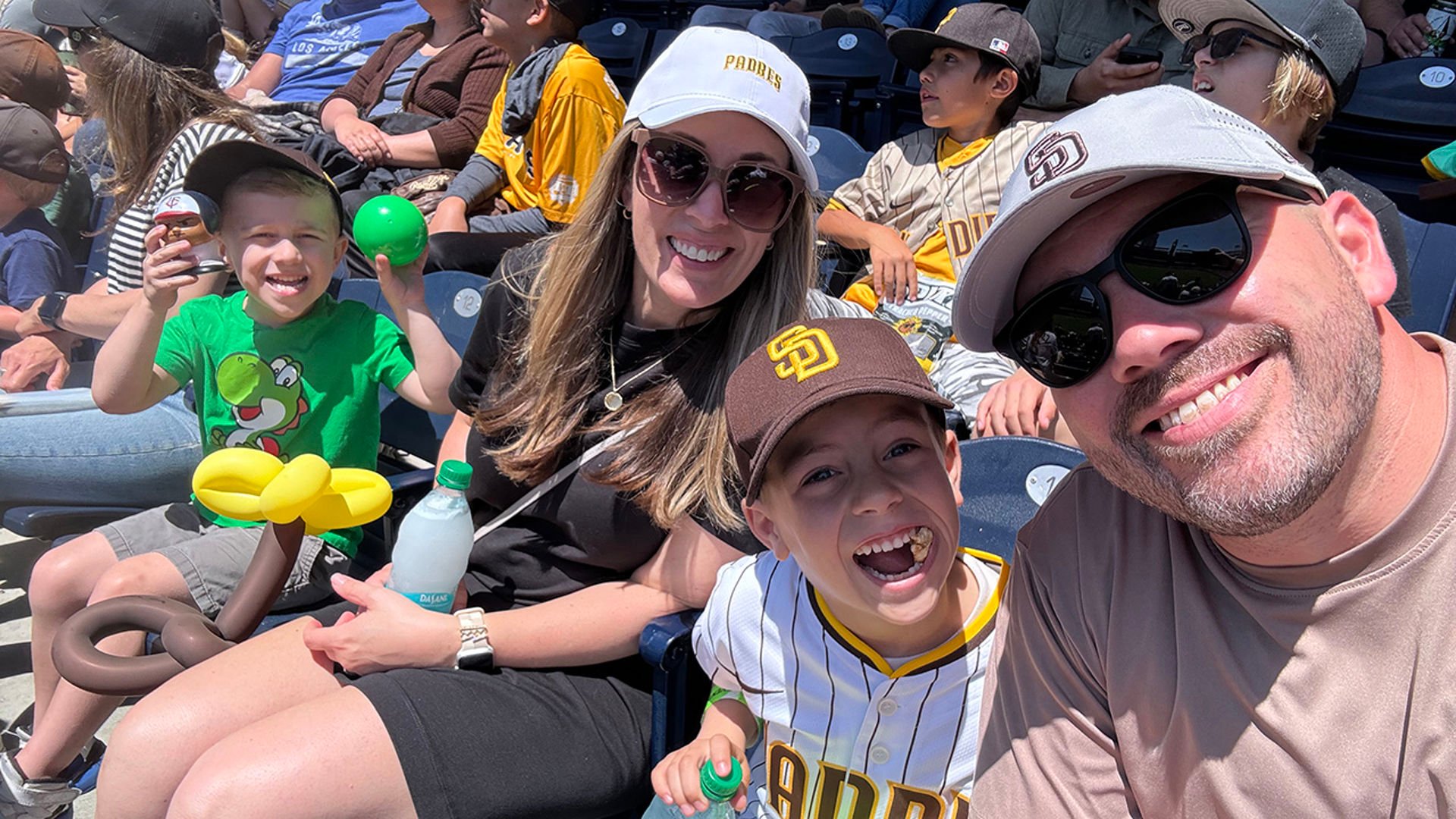
Mike Vigo, chief revenue officer at UC San Diego Health, leading financial strategies that support exceptional patient care. Photo credit: Leslie Aquinde, UC San Diego Health
In the ever-evolving landscape of health care, financial sustainability is more critical than ever. As chief revenue officer at UC San Diego Health, Miguel "Mike" Vigo IV, plays a key role in ensuring the organization remains financially strong while supporting its mission to deliver outstanding patient care. From navigating complex reimbursement models to optimizing revenue cycle management, Vigo and his team are at the forefront of strategies that drive efficiency, improve patient access and ensure long-term stability.
In this Q&A, Vigo offers his perspective on the vital function of the revenue cycle in a health system’s success and its connection to patient care. He also provides a glimpse into his leadership approach, team collaboration, career growth in the field, the demands of health care finance, the balance between work and well-being and what motivates his personal passion for the industry.
What is a hospital revenue cycle and what keeps you passionate about your work in health care finance?
The revenue cycle is the financial backbone of a health system, ensuring that the care provided translates into sustainable funding. Unlike many industries where contracts and payments follow predictable patterns, health care operates in a far more complex and uncertain financial environment. Unlike many industries with straightforward payment processes, health care operates in a complex financial environment where payments are not always guaranteed, even with agreements in place.
The revenue cycle begins when a patient receives care and a claim is submitted to their insurance provider for payment. After insurance processes the claim, any remaining balance is billed to the patient, completing the payment process.
My passion for this field stems from personal experiences. Having faced health challenges in my own life, I understand the impact that financial security and operational efficiency have on patient care. While my team isn’t directly involved in clinical work, we play a crucial role in ensuring that life-saving programs remain funded and accessible.
For example, when UC San Diego Health invests in initiatives like the UC Health Milk Bank for newborns, we work diligently to ensure that the financial structure supports its long-term success. With proper revenue cycle management, valuable programs that reply on donations are sustainable. That responsibility drives me every day.
Additionally, I thrive on the dynamic nature of the revenue cycle. No two days are the same, and the constant challenge of optimizing processes, improving financial outcomes and supporting clinical operations keeps me engaged and motivated.
At the end of the day, my team and I are committed to making a meaningful impact. We take pride in ensuring that our work supports the broader mission of health care — delivering the best possible care to patients while maintaining financial strength. That sense of purpose fuels my passion and keeps me moving forward.
What does a typical day look like for you?
My day starts early with a morning workout, followed by checking emails, reviewing reports, and preparing for the day. Before heading to UC San Diego Health, I make time for my family and ensure everything is set for a productive day ahead.
By 8 a.m., my workday is in full swing, with an average of 8-10 meetings per day. These range from one-on-ones and team check-ins to governance and strategic discussions, including finance, revenue cycle leadership, compliance, patient experience, and more. Many of these meetings require in-depth analysis, decision-making, and cross-functional collaboration. Given the packed schedule, emails and impromptu conversations happen in between meetings.
In the afternoons and evenings, I dedicate time to thorough reviews, financial analysis, documentation, and preparing presentation materials. Occasionally, this work extends into weekends. Every day is dynamic and often changes by the hour, making adaptability an essential part of my role.
Why is the revenue cycle such a critical component of the health system’s overall success and how does it impact patient care?
Beyond financial transactions, the revenue cycle plays a direct role in patient care. From the moment a patient schedules an appointment with UC San Diego Health to the final billing and reimbursement process, our team ensures that everything runs smoothly. This means collaborating with clinical departments to accurately translate care into appropriate codes, aligning with payer requirements and working diligently to minimize claim denials.
Denials impact the organization’s bottom line, making it crucial for us to maintain a steady revenue flow. By doing so, we can continue reinvesting in operations, technology, and ultimately, quality patient care.
Additionally, our role goes beyond numbers. We act as a bridge between patients, providers, and payers, ensuring that financial processes support — not hinder — access to care. Whether it's streamlining prior authorizations, reducing billing complexities, or advocating for fair reimbursement, the work we do helps remove financial barriers and enhances the overall patient experience.
How would you describe your leadership style and how do you foster collaboration across teams to drive success in the revenue cycle?
Communication and collaboration are at the heart of my leadership approach. I firmly believe in over-communicating rather than assuming information has been shared enough. My team knows that transparency is key and I encourage open dialogue to ensure everyone is aligned.

Mike Vigo and his family share a special moment at a San Diego Padres game, enjoying quality time together. Photo used with permission of the Vigo family.
Another critical aspect of my leadership is involving my team in decision-making. I’ve seen firsthand how disengagement occurs when employees feel left out of strategic conversations that directly impact their work. I ensure that my team is part of the vetting, analysis and planning process. When leaders and team members have a say in shaping decisions, they are more engaged, proactive and invested in the outcomes.
Data-driven decision-making also plays a huge role in my approach. While there is always room for interpretation, I rely on financial analytics, performance metrics, and frontline insights to guide our strategies. This ensures that we are making informed choices that benefit both the organization and our staff.
Ultimately, my goal is to create a culture where every team member feels heard, valued and empowered to drive improvements in the revenue cycle.
What advice do you have for individuals looking to advance in the revenue cycle field, especially those with experience or long-standing careers?
The revenue cycle is constantly evolving, so adaptability is key. Whether it’s new regulations, payer contract changes, or emerging technologies, professionals in this field must be agile and open to learning. The revenue cycle is constantly evolving, requiring professionals to stay adaptable amid new regulations, payer contract changes, and emerging technologies. Rather than following a single educational path, qualifications vary by role. Certifications like those from the Healthcare Financial Management Association (HFMA) offer industry-recognized credentials for those seeking career advancement. Success in this field depends on agility, continuous learning, and a willingness to embrace change.
Additionally, strong communication skills are essential. Whether you're engaging with clinical teams, payers, or patients, being able to articulate financial concepts clearly and advocate for necessary changes can set you apart.
Another piece of advice is to speak up. Too often I’ve encountered employees who have struggled with the same challenge for years but never voiced it. When we finally address those issues, solutions often emerge quickly, leading to better efficiency and job satisfaction. If there is a process that isn’t working, don’t be afraid to bring it up. Organizations thrive when their employees contribute insights and push for improvements.
Lastly, never lose sight of the bigger picture. While revenue cycle management involves financial and operational complexities, at the core of it all is patient care. Keeping that mission in mind will keep you motivated and engaged.
How do you manage to maintain work-life balance and what tips can you offer others in high-pressure health care positions?
I’m fortunate to work in an environment where leadership truly values work-life balance. Lori Donaldson, chief financial officer at UC San Diego Health, has been incredibly supportive, creating a culture of caring where personal responsibilities are respected.
For me, prioritization is key. I make sure to be present for important family moments, whether it’s attending my son’s school award ceremony or simply taking a break when needed. When employees feel trusted and supported in their personal lives, they are more willing to go the extra mile professionally.
I also encourage my team to set boundaries and communicate their needs. Health care finance is a demanding field, but it’s essential to recharge and maintain a sustainable pace. A well-balanced team is a high-performing team and fostering that culture benefits everyone.
Careers in Finance
The financial sustainability of UC San Diego Health depends on the hundreds of finance professionals that support our academic, research and clinical missions. As a top-ranking, future oriented organization, we offer challenging Financial Analysis and Fund Management career opportunities in a fast-paced and innovative environment.


